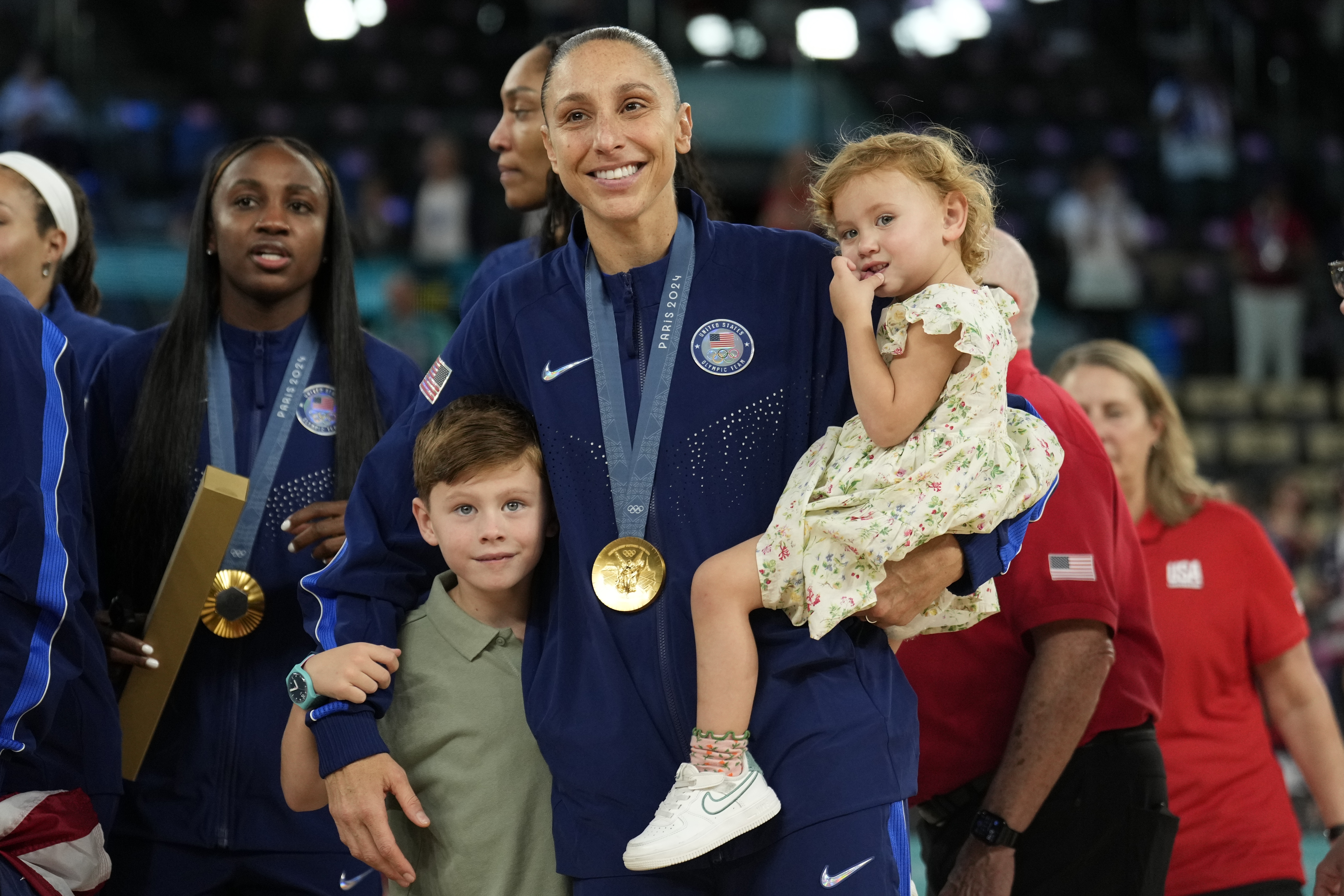PHOENIX (AP) — They have become the faces of the Phoenix Mercury through a dozen years together, sharing the elation of a WNBA championship in 2014, the pride of winning three Olympic gold medals together and the heartbreak of losses, injuries and off-the-court issues.
Diana Taurasi and Brittney Griner.
“It’s been amazing,” Griner said with a wistful grin. “I don’t want it to come to end.”
Now the pair might be down to its last, best chance to make one more basketball memory. The Mercury have a 16-15 record, they’re relatively healthy and they’re focused on building momentum as they prepare for a potentially deep run in the WNBA playoffs that begin in late September.
“We definitely feel like we can,” Griner said. “When we’re clicking, we’re clicking good. We’re working out the kinks here and there before we get to the playoffs. And once you get to the playoffs, anything can go down.”
The 42-year-old Taurasi continues to defy age, averaging nearly 16 points per game in her 20th WNBA season. The 33-year-old Griner keeps rolling as well, making her ninth All-Star team while anchoring the middle of the offense and defense.
“She’s the most dominant post player in our league, hands down,” Taurasi said. “For us, it’s always finding that balance of making sure we’re going inside to her enough, and getting enough movement on the outside. It’s always a work in progress.”
First-year coach Nate Tibbetts isn’t oblivious to the finite nature of basketball careers. Neither player has indicated a plan to retire, but Tibbetts knows there aren’t many chances left.
“Heck yeah, no question,” Tibbetts said. “You pointed out me coming to a new league, a new organization. Those were two of the reasons why I got so excited about it, to hopefully give them that opportunity one more time.
“They’ve seen everything in this league. The good and — unfortunately lately — the bad. So just with the new additions, the new staff, it’s given them a sense of life. Seeing the goal again. I don’t know if this is their last run together, but if it is, let’s end it in a great way.”
The Taurasi-Griner partnership has certainly had its share of interesting storylines through the years.
The Mercury hit an apex during the 2014 season, steamrolling through the regular season with a 29-5 record and then putting together a dominant playoff run that culminated in a three-game sweep over the Chicago Sky in the WNBA Finals.
At the time, it looked like the Mercury might be a budding dynasty.
It never materalized.
“You always think everything’s going to be good, the band’s going to stay together,” Griner said. “But I think that was my young, immature thinking. Not realizing it’s a business. As much as I love this game, things change and it’s just hard.
“Each year, it gets harder and harder.”
Taurasi ended up sitting out the 2015 season because the team she played for in Russia — UMMC Ekaterinburg — offered her a lucrative deal to rest instead of play in the U.S. At the time, the salary for a four-month WNBA season peaked at around $108,000. Top Americans who played overseas in the winter could earn as much as $2 million.
Taurasi returned to the WNBA in 2016 and the Mercury continued to be a playoff-caliber team, making the Finals in 2021 and losing to Chicago in four games. It looked like the franchise was back on the rise, but then Griner went through her well-publicized ordeal in Russia, when she was detained for eight months and missed the entire 2022 season.
Those are a few of the many developments that have taken the Taurasi-Griner combo on a ride. The pair looked like it might fizzle out without another playoff opportunity, but then the Mercury hired Tibbets, added veteran Kahleah Copper and the franchise was back in business. Copper is averaging a career-high 22.9 points per game and was also a part of the United States’ gold medal run in France.
Griner praised Tibbets and the front office for injecting new optimism.
The 6-foot-9 center said the coach encouraged her to spend more time away from the basket, which was new. But she’s thrived in the new role, averaging 18.3 points, 6.4 rebounds and 2.4 assists per game.
“Something new, something fresh,” Griner said. “He wasn’t too familiar with our league and that’s a good thing sometimes. Sometimes you fall into familiar things. He came in with a different persepective, a different outlook on things.”

